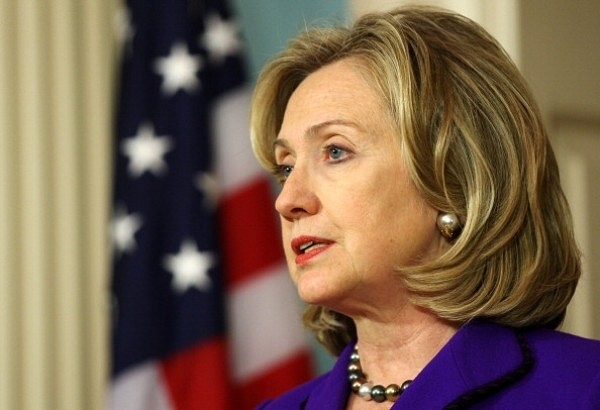World
Libya And The Swift Demise Of ‘Responsibility To Protect’
- The unnecessary war and regime change killed any credibility for a humanitarian doctrine, for years to come.

Then US Secretary of State Hillary Clinton making a statement on Libya at the State Department in 2011 in Washington, DC. (Alex Wong/Getty Images)
The United States-led intervention in Libya ended six years ago with the killing of Moammar Gaddafi and the triumph of Western-backed rebel militias. Supporters of the war at the time hailed Libya as a “model” intervention, and its defenders claimed it had vindicated the doctrine of the “responsibility to protect” in whose name it had been carried out. Six years later, virtually no one regards the Libyan war as anything other than a reckless blunder. Libya remains splintered by rival militias and competing power centers, and the “responsibility to protect” doctrine that the intervention did so much to discredit has been all but forgotten at a time when it is very much needed.
“Responsibility to protect” (R2P), endorsed by the United Nations (UN) in 2005, was an attempt to create an international mechanism for preventing massive losses of civilian life. The requirements for taking military action to protect a civilian population were based on just war theory: just cause, right intention, proportionality, reasonable prospect of success, and last resort. That set a very high bar for armed intervention that the Libyan case did not clear. Far from being a last resort, military intervention was the preferred Western response to the civil war in Libya almost from the beginning. That meant the Libyan war was waged in the name of a doctrine whose core principles it ignored from the start.
The Libyan intervention only received its international authorisation at the UN through the misrepresentation of its purpose to other major powers on the Security Council. Russia and China both abstained on the resolution authorising the intervention because they had been assured that the sole purpose of military action was to protect civilians from being attacked. However, despite public claims by the Obama administration that regime change was not the goal, the mission immediately morphed into a campaign to remove Gaddafi from power. The US-led coalition repeatedly dismissed proposals for ceasefires and negotiations that could have ended the war short of toppling the Libyan government, because their objectives had expanded far beyond preventing atrocities to include a complete victory by rebel forces.
Almost no one considers the Libyan war a success today, and for good reason. In addition to leaving Libya in a state of upheaval, the war seriously destabilised neighbouring Mali and led to the spread of weapons to conflicts elsewhere in Africa and the Near East. Libya’s chaos has contributed to the migration crisis affecting Europe, and migrants moving through Libya are subjected to the most appalling treatment imaginable. When judged by the standard of the war’s original justification—the protection of civilians—it has to be declared a clear failure. Because this ill-conceived war was so closely linked with the “responsibility to protect” doctrine, it is no accident that the doctrine itself has been almost entirely forgotten.
Now that many of the same governments that toppled Gaddafi have engaged in equally atrocious or even worse behaviour against the civilian population in Yemen, it is hard not to conclude that those who invoked the “responsibility to protect” in 2011 did so cynically and with absolutely no intention of holding others to the same standard. The loss of R2P is a sad one that will take many years to remedy. By wrongly using a perfectly sensible doctrine to justify an unnecessary war, the so-called “humanitarian” interventionists of the West have made it that much harder to protect civilians when they most need it.
This piece was first published on The American Conservative and has been republished here with permission.
Introducing ElectionsHQ + 50 Ground Reports Project
The 2024 elections might seem easy to guess, but there are some important questions that shouldn't be missed.
Do freebies still sway voters? Do people prioritise infrastructure when voting? How will Punjab vote?
The answers to these questions provide great insights into where we, as a country, are headed in the years to come.
Swarajya is starting a project with an aim to do 50 solid ground stories and a smart commentary service on WhatsApp, a one-of-a-kind. We'd love your support during this election season.
Click below to contribute.
Latest